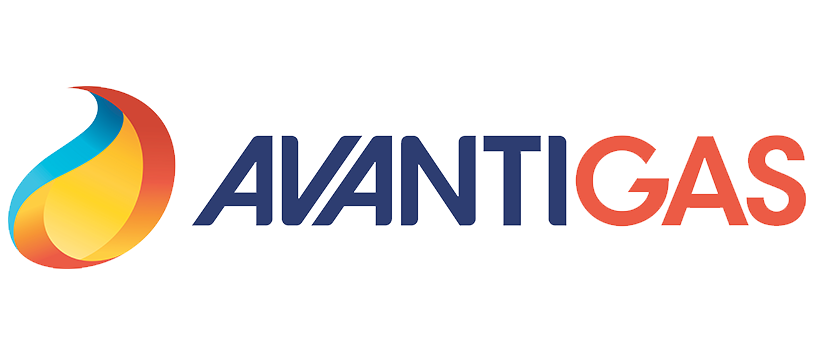One stop solution for your business Utility.
Before renewing your business utility contract, such as – Gas, Electricity, Telephone, Broadband, Water, Card Machine, Business Insurance and Business Waste, whatever you need, get quotations from 20+ trusted providers to compare the price and find the best deal. It’s ‘Free & Unconditional‘. Just click the required button below for a ‘Free and NO-obligation’ quote.
satisfied customers



Vetted Suppliers currently on our approved panel

















10+
years of experience
why is real-time comparison vital for finding the best utility deal?
Real-time comparison is vital before renewing a contract for utility services because prices, promotions, and service offerings can change anytime. What seems like a great deal today might not be the best option tomorrow. Real-time comparison gives you up-to-date access to the latest prices, promotions, and plan details, so you can make informed decisions based on current market conditions. By comparing utility deals in real time, you avoid outdated information and ensure you’re choosing the most cost-effective and suitable plan for your needs. In a competitive market, timing matters — and real-time insights help you stay ahead. And utilitylinx made it easy. To do a real time comparison for any of your business essentials such as gas, electricity, telephone, broadband, card machine, commercial waste, business insurance, etc. Please contact us today.
FAQs
We offer comparison and switching services for a wide range of essential business utilities, including (but not limited to) gas, electricity, telephone and broadband, card machines, water, commercial waste, and business insurance.
Obtain quotes from competing suppliers using accurate details such as your annual usage, contract end date, and existing tariff. Then, compare these offers with your existing provider to identify potential savings and ensure you’re getting the best value for your business utilities.
No, switching business utilities providers in the UK is generally not difficult, especially with the help of comparison or switching services. However, it can be more complex than domestic switching due to contract terms, notice periods, and credit checks. Planning ahead and having accurate information makes the process smoother.
Yes, you can often get a discount or better overall pricing by bundling multiple business utility services (e.g., energy, broadband, phone, card machines) with the same provider or through a utility broker.
Benefits of Bundling:
Lower overall costs
- Better contract terms or longer fixed-rate deals
Dedicated support for all services in one place
However, always compare bundled deals with standalone offers to ensure you’re truly getting the best value.
An MPAN is a unique number for your electricity supply, while an MPRN is for your gas supply. Both identify the specific meter point at your property.
A business energy contract is an agreement between a business and an energy supplier for the supply of electricity and/or gas to commercial premises. It includes details like:
Unit rates and standing charges
Contract length (usually 1–5 years)
Billing terms
Renewal and termination conditions
Business energy contracts are usually fixed-rate and tailored to your usage. Unlike domestic contracts, they typically don’t have a cooling-off period, and prices are based on business size, credit rating, and consumption.
In most cases, you cannot break a business energy contract before its end date without facing penalties or exit fees. Business energy contracts are legally binding and don’t usually include a cooling-off period.
However, you may be able to exit early if:
You pay an early termination fee
Your business is moving premises
The supplier agrees to release you (rare, but possible)
It’s best to check your contract terms or speak to your supplier directly before attempting to cancel.
Along with the personal and/or business information the following technical information is needed –
MPAN (for electricity)
MPRN (for gas)
Annual consumption (in kWh) – from previous bills or supplier estimates
Current tariff details
Meter type (e.g., half-hourly, standard, smart meter)
Meter readings (optional but useful)
Supply start date or contract end date with your current provider
3 to 6 months before your current contract ends
This is called your renewal window, and it’s when:
You can shop around without early exit fees
You avoid being rolled onto expensive out-of-contract or deemed rates
Suppliers are more likely to offer competitive deals
Also Consider:
Market conditions – Prices tend to be lower in spring and early autumn, outside of peak usage seasons.
Energy trends – If prices are rising, locking in early can protect you from future increases.
CCL stands for Climate Change Levy. It’s a government tax on the energy used by businesses in the UK, designed to encourage energy efficiency and reduce carbon emissions.
Key Points About CCL:
Applies to: Most businesses and non-domestic energy users
Charged on:
Electricity
Natural gas
LPG (liquefied petroleum gas)
Coal and coke
Added to your energy bill separately from the unit rate and standing charge
Not charged on renewable energy if certain criteria are met
Exemptions/Discounts available for:
Charities with non-commercial use
Businesses with a Climate Change Agreement (CCA) can get up to 90% off the CCL
Green energy is energy generated from natural, renewable sources that have a low or zero environmental impact, especially in terms of carbon emissions.
Examples of Green Energy Sources:
Solar power – from sunlight
Wind power – from wind turbines
Hydropower – from flowing water
Biomass – from organic material
Geothermal – from heat within the earth
Reduces greenhouse gas emissions
Helps combat climate change
Supports energy sustainability
Often eligible for government incentives or recognition
If you don’t agree a new business energy contract after your current one expires, your supplier will usually move you to a default, out-of-contract, or deemed rate — and this can have serious consequences:
Higher costs – Deemed or out-of-contract rates are much more expensive than fixed deals
No price protection – Prices can change at short notice—often with no warning
No contract security – You’re on a rolling agreement with no fixed term or tariff
Ongoing charges – You’ll continue being charged, even if you’re not using the full supply
No, the energy price cap does not apply to business energy customers — it only applies to domestic (household) customers in the UK.
To terminate your business energy contract after the agreed term, notify your supplier in writing (email or letter) usually 30 days before the contract ends, including your business details, account number, meter number, and intended termination date. Request confirmation and keep a copy for your records.
As a broker, Utilitylinx earns its income through commissions paid by energy suppliers when we successfully secure contracts on behalf of our clients. Our commission is already built into the quoted price, so the amount you see includes our fee—there’s no extra cost to you.
